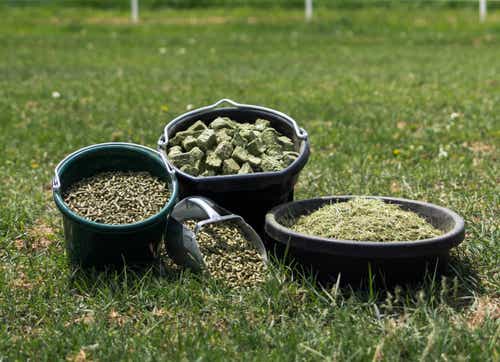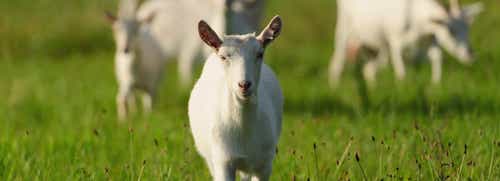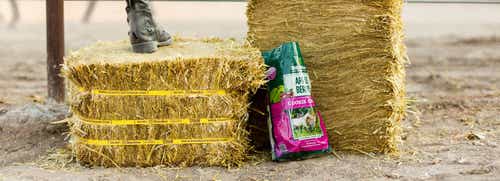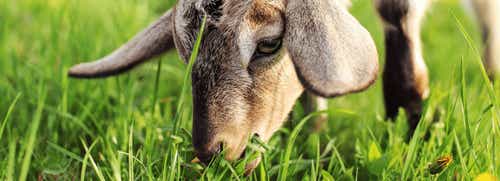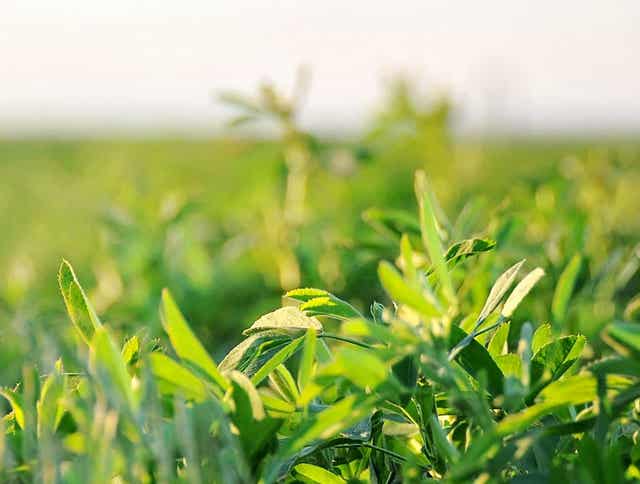
3 Common Misconceptions of Feeding Alfalfa to Horses
Many horse owners are aware, alfalfa has been blamed (justly or unjustly) for problems associated with horse health. “Too much of this nutrient”, “not enough of that nutrient” are common phrases found in discussions regarding alfalfa hay for horses. The simple fact of the matter is that a considerable number of very good horses are raised and perform each year on diets consisting of a large percentage of alfalfa. Therefore, common sense tells us that alfalfa can be used successfully in horse feeding programs. The following are three common misconceptions surrounding feeding alfalfa to horses.
Misconception 1: Will alfalfa make my horse hot?
After water, the major constituent of the horse's body is protein. Alfalfa hay is an excellent source of protein, both in content and quality. The amount of protein supplied by alfalfa can go a long way toward satisfying the high protein requirements of young growing horses. In the case of mature horses, alfalfa forage will certainly provide enough protein to satisfy requirements.
What happens to protein fed in excess of requirements? Since dietary proteins (amino acids) are not stored in the body as surplus, any extra is broken down and used as an immediate energy source or stored as fat. The metabolic pathways used to convert protein to energy, use additional energy and create waste products, rendering the process close to energy neutral.
Alfalfa provides a significant amount of calories; however, an excess of calories in any form, whether from alfalfa, grain or oil, without the exercise to burn them, can result in an excessively energetic horse. Alfalfa fed with a careful eye to the proportions of the whole diet, and the energy needs of the horse, will not create excess energy.
Urschel, K.L. and Lawrence, L.M. Amino acids and protein (Chapter A-6). In: Equine Applied and Clinical Nutrition (2013) 113-135.
Misconception 2: Is alfalfa hard on horses’ kidneys?
Protein, which is used for energy, has the added tax associated with disposal of the nitrogen connected to the protein. The nitrogen is filtered out of the blood by the kidneys and voided in the urine. Contrary to popular belief, dealing with this by-product of protein conversion is not “hard on the horse's kidneys”, unless they have been overtaxed in some other way. The additional water necessary to void nitrogen in the urine may be critical if horses have limited access to water. As a practical recommendation, select alfalfa hays which do not contain extremely high levels of protein (greater than 17% crude protein).
Meyer, H., (1983). Protein metabolism and protein requirements in horses. Fourth International Symposium. Protein metabolism and Nutrition 343-364.
Misconception 3: Does alfalfa cause growth problems in foals?
Growing horses have high nutrient requirements, with quality digestible protein being a very crucial part of that nutrient requirement needed for optimal, healthy development. There is numerous, inaccurate advice floating around the industry that excessive dietary protein from such sources as alfalfa, can cause growth problems in foals. This has been proven incorrect in many studies, and it is concluded that deficiencies in dietary protein are more likely to negatively affect bone metabolism.
Schryver, H.F., D.W. Meakim, J.E. Lowe, J. Williams, L.V. Soderholm, and H.F. Hintz. 1987. Growth and calcium metabolism in horses fed carrying levels of protein. Equine Vet. J. 19:280-287.
Thompson, K.N., J.P. Baker, and S.G. Jackson. 1988. The influence of high dietary intakes of energy and protein on third metacarpal characteristics of weanling ponies. J. Equine Vet. Sci. 8:391-394.
Savage, C.J., McCarthy, R.N. and Jeffcott, L.B. (1993) Effect of dietary energy and protein on induction of dyschondroplasia in foals. Equine vet. J., Suppl. 16, 74-79.
In conclusion, the availability and nutrient content of alfalfa hay make it a logical forage for horses. Selecting alfalfa hay with moderate protein content and providing additional diet fortification with minerals, help make this a balanced forage for horses. Standlee Premium Western Forage® has several excellent choices of alfalfa products ranging from compressed bales to chopped alfalfa and pelleted and cubed products.
By Dr. Tania Cubitt & Dr. Stephen Duren
Standlee Nutritional Experts - Performance Horse Nutrition




